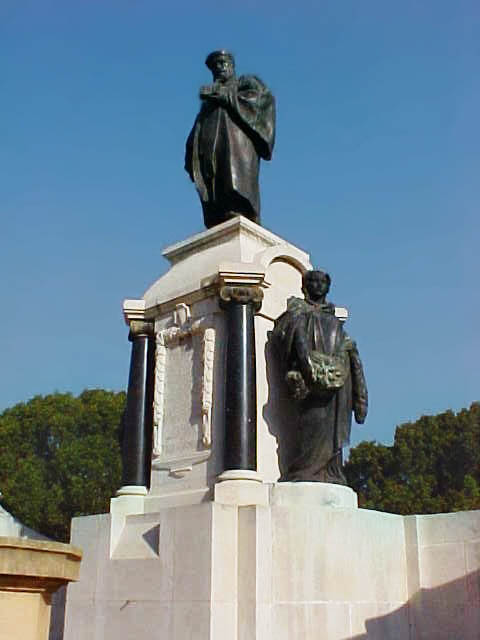|
Dorothy Norris
Dorothy Norris née Harrop (?-?) was an English biochemist who worked on yeast fermentation, protein chemistry, and was a pioneer in the study of carcinogens. She moved to India where she worked at the Indian Institute of Science before becoming the founding director of the Indian Lac Research Institute at Ranchi. Dorothy Harrop worked with Sir Arthur Harden at the Lister Institute on yeast fermentation, bacterial enzyme chemistry, growth, and on protein reactions. She also worked on the effects of coal tar on cell cultures and noted increased cell division ("auxetic activity") an known indicator of cancer. She moved to India in 1917 along with her husband Roland Victor Norris and was the first woman faculty member at the Indian Institute of Science The Indian Institute of Science (IISc) is a public, deemed, research university for higher education and research in science, engineering, design, and management. It is located in Bengaluru, in the Indian state of Karnataka. Th ... [...More Info...] [...Related Items...] OR: [Wikipedia] [Google] [Baidu] |
Biochemist
Biochemists are scientists who are trained in biochemistry. They study chemical processes and chemical transformations in living organisms. Biochemists study DNA, proteins and cell parts. The word "biochemist" is a portmanteau of "biological chemist." Biochemists also research how certain chemical reactions happen in cells and tissues and observe and record the effects of products in food additives and medicines. Biochemist researchers focus on playing and constructing research experiments, mainly for developing new products, updating existing products and analyzing said products. It is also the responsibility of a biochemist to present their research findings and create grant proposals to obtain funds for future research. Biochemists study aspects of the immune system, the expressions of genes, isolating, analyzing, and synthesizing different products, mutations that lead to cancers, and manage laboratory teams and monitor laboratory work. Biochemists also have to have the c ... [...More Info...] [...Related Items...] OR: [Wikipedia] [Google] [Baidu] |
Molecular Biophysics
Molecular biophysics is a rapidly evolving interdisciplinary area of research that combines concepts in physics, chemistry, engineering, mathematics and biology. It seeks to understand biomolecular systems and explain biological function in terms of molecular structure, structural organization, and dynamic behaviour at various levels of complexity (from single molecules to supramolecular structures, viruses and small living systems). This discipline covers topics such as the measurement of molecular forces, molecular associations, allosteric interactions, Brownian motion, and cable theory. Additional areas of study can be found on Outline of Biophysics. The discipline has required development of specialized equipment and procedures capable of imaging and manipulating minute living structures, as well as novel experimental approaches. Overview Molecular biophysics typically addresses biological questions similar to those in biochemistry and molecular biology, seeking to find ... [...More Info...] [...Related Items...] OR: [Wikipedia] [Google] [Baidu] |
Carcinogen
A carcinogen is any substance, radionuclide, or radiation that promotes carcinogenesis (the formation of cancer). This may be due to the ability to damage the genome or to the disruption of cellular metabolic processes. Several radioactive substances are considered carcinogens, but their carcinogenic activity is attributed to the radiation, for example gamma rays and alpha particles, which they emit. Common examples of non-radioactive carcinogens are inhaled asbestos, certain dioxins, and tobacco smoke. Although the public generally associates carcinogenicity with synthetic chemicals, it is equally likely to arise from both natural and synthetic substances. Carcinogens are not necessarily immediately toxic; thus, their effect can be insidious. Carcinogens, as mentioned, are agents in the environment capable of contributing to cancer growth. Carcinogens can be categorized into two different types: activation-dependent and activation-independent, and each nature impacts their ... [...More Info...] [...Related Items...] OR: [Wikipedia] [Google] [Baidu] |
Indian Lac Research Institute
Indian or Indians may refer to: Peoples South Asia * Indian people, people of Indian nationality, or people who have an Indian ancestor ** Non-resident Indian, a citizen of India who has temporarily emigrated to another country * South Asian ethnic groups, referring to people of the Indian subcontinent, as well as the greater South Asia region prior to the 1947 partition of India * Anglo-Indians, people with mixed Indian and British ancestry, or people of British descent born or living in the Indian subcontinent * East Indians, a Christian community in India Europe * British Indians, British people of Indian origin The Americas * Indo-Canadians, Canadian people of Indian origin * Indian Americans, American people of Indian origin * Indigenous peoples of the Americas, the pre-Columbian inhabitants of the Americas and their descendants ** Plains Indians, the common name for the Native Americans who lived on the Great Plains of North America ** Native Americans in the Uni ... [...More Info...] [...Related Items...] OR: [Wikipedia] [Google] [Baidu] |
Arthur Harden
Sir Arthur Harden, FRS (12 October 1865 – 17 June 1940) was a British biochemist. He shared the Nobel Prize in Chemistry in 1929 with Hans Karl August Simon von Euler-Chelpin for their investigations into the fermentation of sugar and fermentative enzymes. He was a founding member of the Biochemical Society and editor of its journal for 25 years. Biography Early years Arthur was born to Scottish Presbyterian businessman Albert Tyas Harden and Eliza Macalister. His early education was at a private school in Victoria Park run by Dr Ernest Adam. He went to study in 1877 at a Tettenhall College, Staffordshire, and entered Owens College in 1882, now the University of Manchester, in 1882, graduating in 1885. He studied chemistry under Professor Roscoe at Owens College and was influenced by J.B. Cohen. Research In 1886 Harden was awarded the Dalton Scholarship in Chemistry and spent a year working with Otto Fischer at Erlangen where he worked on the synthesis of β-nitroso-α ... [...More Info...] [...Related Items...] OR: [Wikipedia] [Google] [Baidu] |
Lister Institute Of Preventive Medicine
The Lister Institute of Preventive Medicine, informally known as the Lister Institute, was established as a research institute (the British Institute of Preventive Medicine) in 1891, with bacteriologist Marc Armand Ruffer as its first director, using a grant of £250,000 from Edward Cecil Guinness of the Guinness family. It had premises in Chelsea, London, Chelsea in London, Sudbury, Suffolk, Sudbury in Suffolk, and Elstree, Elstree in Hertfordshire, England. It was the first medical research charity in the United Kingdom. It was renamed the Jenner Institute (after Edward Jenner, the pioneer of smallpox vaccine) in 1898 and then, in 1903, as the Lister Institute in honour of the great surgeon and medical pioneer, Joseph Lister, 1st Baron Lister, Dr Joseph Lister. In 1905, the institute became a school of the University of London. History Until the 1970s the institute maintained laboratories and conducted research on infectious disease and vaccines. It was funded by manufacturing an ... [...More Info...] [...Related Items...] OR: [Wikipedia] [Google] [Baidu] |
Roland Victor Norris
Roland Victor Norris (1888 – 28 April 1950) was a biochemist and agricultural scientist who worked in India and Ceylon. He served as the first agricultural chemist to the government of Madras. Biography Norris graduated from Manchester University and worked as an assistant to W.H. Perkin. He then worked at the Lister Institute of Preventive Medicine in London. In 1910 he worked with Professor Arthur Harden on yeast fermentation and received a D.Sc. from London University. In 1914 he took up the post of Physiological Chemist at the Imperial Bacteriological Laboratory in Mukteshwar, India. He served in the Indian Army briefly during the war and in 1918 he became the first Agricultural Chemist to the government of Madras. From 1924 to 1929 he worked as a professor of biochemistry at the Indian Institute of Science working on a range of agricultural problems including soil fertility, the chemistry of shellac and the spike disease of sandalwood. He moved to Ceylon in 1929 where he ... [...More Info...] [...Related Items...] OR: [Wikipedia] [Google] [Baidu] |
Indian Institute Of Science
The Indian Institute of Science (IISc) is a public, deemed, research university for higher education and research in science, engineering, design, and management. It is located in Bengaluru, in the Indian state of Karnataka. The institute was established in 1909 with active support from Jamsetji Tata and thus is also locally known as the ''"Tata Institute"''. It is ranked among the most prestigious academic institutions in India and has the highest citation per faculty among all the universities in the world. It was granted the deemed to be university status in 1958 and the Institute of Eminence status in 2018. History After an accidental meeting between Jamsetji Tata and Swami Vivekananda, on a ship in 1893 where they discussed Tata's plan of bringing the steel industry to India, Tata wrote to Vivekananda five years later: "I trust, you remember me as a fellow-traveller on your voyage from Japan to Chicago. I very much recall at this moment your views on the growth of ... [...More Info...] [...Related Items...] OR: [Wikipedia] [Google] [Baidu] |
English Biochemists
English usually refers to: * English language * English people English may also refer to: Peoples, culture, and language * ''English'', an adjective for something of, from, or related to England ** English national identity, an identity and common culture ** English language in England, a variant of the English language spoken in England * English languages (other) * English studies, the study of English language and literature * ''English'', an Amish term for non-Amish, regardless of ethnicity Individuals * English (surname), a list of notable people with the surname ''English'' * People with the given name ** English McConnell (1882–1928), Irish footballer ** English Fisher (1928–2011), American boxing coach ** English Gardner (b. 1992), American track and field sprinter Places United States * English, Indiana, a town * English, Kentucky, an unincorporated community * English, Brazoria County, Texas, an unincorporated communi ... [...More Info...] [...Related Items...] OR: [Wikipedia] [Google] [Baidu] |
British Cancer Researchers
British may refer to: Peoples, culture, and language * British people, nationals or natives of the United Kingdom, British Overseas Territories, and Crown Dependencies. ** Britishness, the British identity and common culture * British English, the English language as spoken and written in the United Kingdom or, more broadly, throughout the British Isles * Celtic Britons, an ancient ethno-linguistic group * Brittonic languages, a branch of the Insular Celtic language family (formerly called British) ** Common Brittonic, an ancient language Other uses *''Brit(ish)'', a 2018 memoir by Afua Hirsch *People or things associated with: ** Great Britain, an island ** United Kingdom, a sovereign state ** Kingdom of Great Britain (1707–1800) ** United Kingdom of Great Britain and Ireland (1801–1922) See also * Terminology of the British Isles * Alternative names for the British * English (other) * Britannic (other) * British Isles * Brit (other) * Bri ... [...More Info...] [...Related Items...] OR: [Wikipedia] [Google] [Baidu] |


